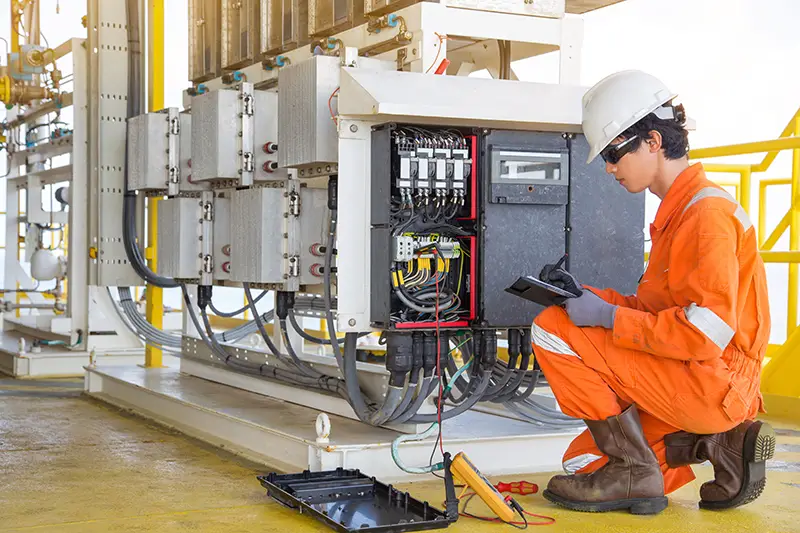Click here to get this post in PDF

For the average business owner, navigating and remaining compliant to the many laws surrounding a business can be dizzying. Compliance and health and safety can seem like a confusing interruption to work – right until the consequences of failing to take them seriously are felt.
Today we’re briefly and clearly running you through regulations and recommendations on electrical safety in the UK workplace.
The importance of testing
Testing is king. It’s important to keep one simple thing in mind about electricity: It will always look for the easiest way to reach the earth. Practically speaking, this means that it’s easy to miss faults and damage in parts and appliances, with potentially fatal consequences through fire and electrocution.
Since 1989 we’ve benefited from guidance given through the Electricity at Work Regulations, which have made it more clear for businesses how important safety in appliances is. With these in place, UK businesses must always ensure that their equipment and tools are safe for operation – including ones hired out for contractors, clients and customers.
Workplace safety
When it comes to the workplace, the UK has regulations in place that require any employer to take sufficient action to adequately limit the risk of death or harm of any kind caused by an electrical system. Important to remember here is the fact that these laws include electrical equipment and installations both.
Regulations governing electrical safety in workplaces cover most equipment you’ll ever need to use, namely anything that works between 50 and 1000 volts of alternating current. In voltage, it’s 75 to 1500 of direct current.
Consistency matters
As you might already be thinking, there’s a lot of nuance in this when it comes to the real world. What do I do for certain equipment? How do I test it? When should I do it?
Thankfully, the simple answer is that you can pass this complicated safety subject over to the hands of electrical experts like Quest Electrical Ltd. This turns a laborious personal requirement into a simple service where your needs are laid out and a schedule is arranged for adequate electrical testing.
Especially valuable is the fact that a skilled electrical testing company will be able to appraise your equipment and risk profile, producing a simultaneous or staggered testing schedule that suits your preference and business with minimal disruption to its daily operation.
Proof of work
Better yet, the subject of health and safety compliance is made easier should an incident occur through a testing provider’s paperwork and reports. In the field of electrical testing these are detailed and complex, making their provision as part of an electrical testing service invaluable to a business owner should any need to prove their electrical safety occur.
5 Transformer Safety Best Practices For Industrial Professionals
By investing in the assistance of qualified professionals, business owners can neatly and swiftly tick an important compliance box on their list of obligations as a manager of people and property. And with accidents occurring each and every year in the UK due to electrical risks, it’s important we do what we can to work safely together.
Image Source: Shutterstock.com
